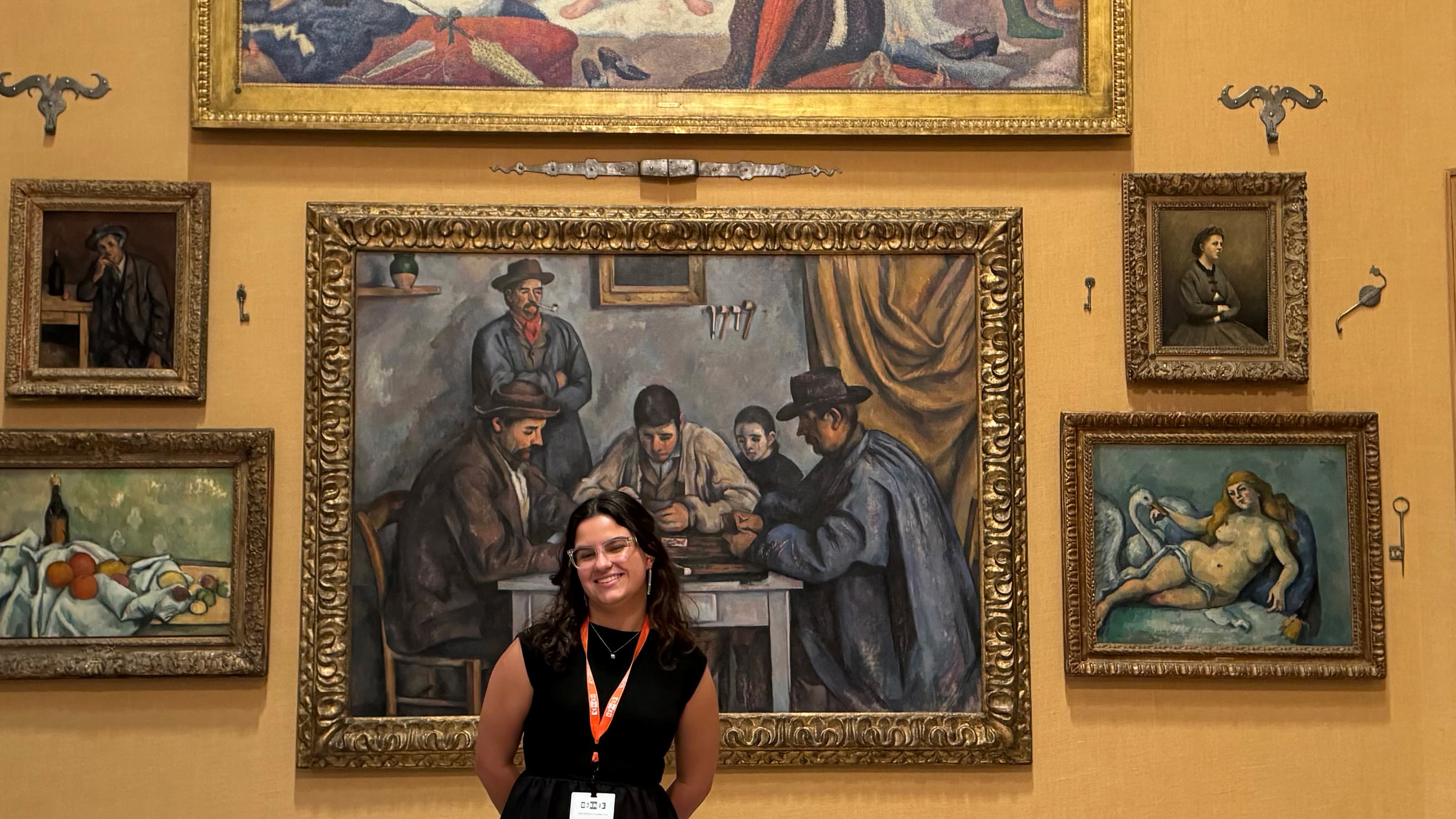Saint Joseph’s ASPIRE Student Lands Internship with Local Wealth Management Firm, Highlighting Power of Neurodiversity in the Workplace
As a participant in Saint Joseph’s ASPIRE program, Griffin Reichow, BS ’25, exemplifies how neurodiverse individuals can thrive in corporate settings after landing an internship with Cerity Partners.

A 70-year-old movie star arrives at Cerity Partners’ West Conshohocken office to discuss his investment portfolio. The celebrity wants to spend more time with family and is considering retirement. Griffin Reichow, BS ’25, a current ASPIRE student on the spectrum at Saint Joseph’s Kinney Center for Autism Education and Support, has never given financial advice to anyone, let alone a multi-millionaire.
Thankfully, this scenario is merely hypothetical. Reichow, who landed a summer internship with Cerity Partners, had the opportunity to work on this case study along with a dozen other interns. At the end of the internship, they presented their findings to a panel of financial associates and partners. As more companies look to recruit people with atypical brains, Reichow, with the help of Saint Joseph’s Kinney Center and Cerity Partners, is proving how neurodiverse individuals bring unique perspectives, innovative problem-solving skills and novel approaches to the workplace.
“This case study and internship at Cerity allowed me to have hands-on experience working in a corporate environment,” says Reichow. “The ASPIRE program has helped me become more organized and prepared for life after college, which translated into a positive experience at my internship.”
For Kimberly Crowley, a partner at Cerity Partners, the importance of neurodiversity in the workplace is ingrained in who she is. Her son, Finn Crowley, BS ’27, is also an ASPIRE student. She has been able to see firsthand how neurodiverse individuals can enrich workplace dynamics and drive companies toward greater creativity and success.
“We see potential where other employers might not,” says Crowley. “I know many companies may think, ‘Hey, let’s do something good for the community.’ However, companies quickly discover that neurodiverse individuals are some of the most productive people on their team. For example, my son is very committed and does what he says he is going to do. I think employers have found value in that.”
Eric Patton, PhD, professor and chair of the Department of Management, echoes Crowley’s sentiment in his recently published book “Neurodiversity and Work: Employment, Identity and Support Networks for Neurominorities.” The book dives into factors that contribute to successful employment and integration of neurodiverse workers, including the transition from school to the labor market. It also highlights barriers and challenges faced by neurominorities.
“As neurotypical managers, we need to look at our methods of recruiting and evaluating people,” says Patton. “We need to make sure that we don’t have blinders on in terms of our idea of an ideal worker.”
In support of this goal, Saint Joseph’s offers a Managing Neurodiversity in the Workplace minor that equips students with the skills necessary to support neurodiverse individuals in professional settings.
The ASPIRE program has helped me become more organized and prepared for life after college, which translated into a positive experience at my internship.
Griffin Reichow, BS ’25
Current ASPIRE student at Saint Joseph's Kinney Center for Autism Education and SupportAdam Landau, a partner with Cerity Partners, who also has an autistic son, emphasizes that hiring neurodiverse workers should not be seen as “altruism.”
“In a tough labor market, it is about casting as wide of a net as possible,” says Landau. “I remember meeting folks from SAP at an Autism at Work conference. They said some of their top programmers were individuals with autism spectrum disorder (ASD). They filled the job that needed to be done as well as anybody could have. I think we have found that to be the case with our Kinney Center interns over the years. There are certain things that they do better than others and that has been valuable to us.”
Luke Schlegel, MEd, LPC, assistant director of college support at the Kinney Center, works closely with Reichow during the academic year. He says 86% of ASPIRE graduates report that they found full-time employment or are enrolled in a graduate program within six months of graduation. This percentage is four times higher than other adults with ASD.
“We have a second-year career readiness course that Griffin just went through this year,” says Schlegel. “Our students get a chance to write a résumé that gets reviewed by the Career Center. They go through a mock interview process. They practice networking with alumni in a field of interest that relates to their career path. As you can see with Griffin, it helps set our students up for success during school, but especially once they leave into the workforce.”
Crowley emphasizes that the Kinney Center is unique. When visiting colleges and programs around the country with her son Finn, she was blown away by the Kinney Center’s commitment to helping their students live as independently as possible and succeed in the workplace.
“We are so incredibly fortunate that the Kinney Center is in our backyard,” says Crowley. “My son had a lot of challenges in school as he was growing up. From my perspective, I don’t think he would be going into a sophomore year in college without ASPIRE. I know he wouldn’t be.”



